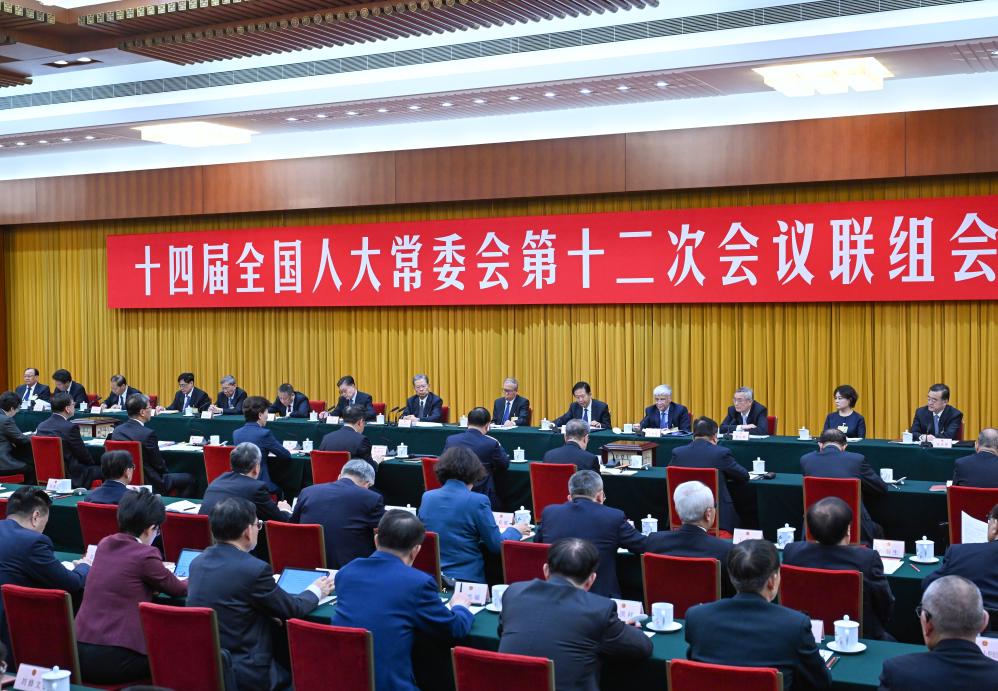
Zhao Leji, chairman of the National People's Congress Standing Committee, attends a joint inquiry at a meeting held during an ongoing session of the NPC Standing Committee at the Great Hall of the People in Beijing, capital of China, Nov. 7, 2024. (Xinhua/Rao Aimin)
BEIJING, Nov. 7 (Xinhua) -- Senior officials from the Chinese central government have pledged more support for the country's top universities as the nation strives to build a group of "world-class" institutions.
The officials, including State Councilor Shen Yiqin and several government ministers, made the remarks on Thursday at a meeting held during an ongoing session of the National People's Congress (NPC) Standing Committee.
Lawmakers deliberated a report on building world-class universities with Chinese characteristics and strong disciplines. They also launched a joint inquiry at the meeting, which was attended by Zhao Leji, chairman of the NPC Standing Committee.
At the meeting, lawmakers raised questions about incentive mechanisms for the teaching workforce, international exchanges and cooperation, building a modern university system, and advancing law-based university governance, among other topics.
Shen and the ministers listened to the lawmakers' comments and addressed their questions.
Praising the progress made in the drive to build world-class universities and disciplines, Shen emphasized the need to deepen reforms to unleash the motivation and vitality of universities, enhance resource support to improve development capacity, and provide targeted support for national strategies and high-quality development needs.
Presiding over the meeting, Cai Dafeng, vice chairman of the NPC Standing Committee, urged relevant State Council departments to thoroughly study and address the comments and suggestions put forward by lawmakers. He also called for reporting progress to the NPC Standing Committee in a timely and legally compliant manner.
About 150 universities and 500 academic disciplines have been included in China's initiative to build world-class universities and disciplines.
Since 2016, these universities have trained over 50 percent of the nation's master's degree holders and 80 percent of its doctoral graduates, according to official data. ■



